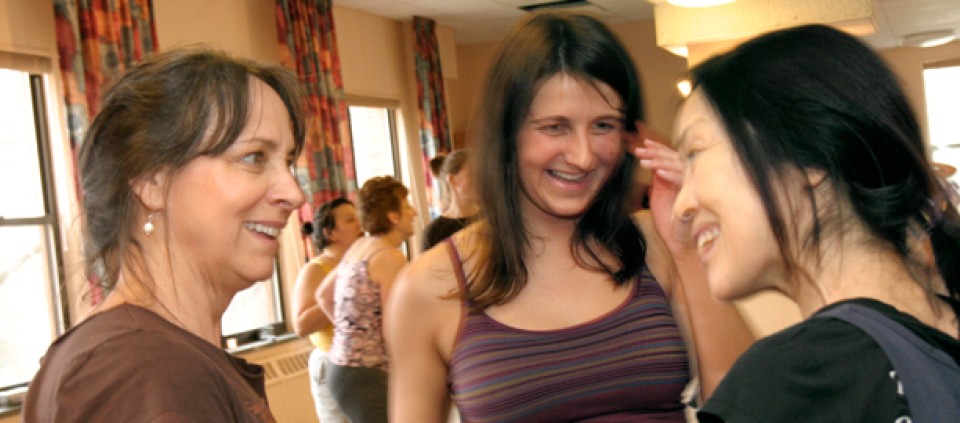Can Having Friends Help Ease Physical Pain?

A study conducted by researchers at Ohio State University and presented at the annual meeting of the Society for Neuroscience seemed to prove that friendship has benefits beyond the emotional. In studying treatments for peripheral neuropathy, a pain and numbness of the hands and feet that’s a side effect of diabetes and one of the most common chronic diseases in the United States, researchers found that lab mice paired with a cage-mate experienced far less pain from nerve damage than those who were caged alone. Mice who had “friends” had higher thresholds for pain; they also experienced reductions in inflammation. The lonely mice were just lonely.
The findings are a powerful reminder that during tough times, it’s important not to go it alone—even if you think you can. “There’s something so profound about sharing the burden—or the joy—with another,” says Aruni Nan Futuronsky, Kripalu faculty member and life coach. “What’s the expression—share a burden, it’s halved, share a joy, it’s doubled? In any case, the act of taking from our inner self and giving it to another is wholly beneficial for both parties. We share as a way to lighten the load.” Meanwhile, letting others unload is cathartic for us, the listener, as well.
And yet calling on friends for support is admittedly not an easy thing to do. We’ve been trained, says Aruni, to keep our burdens to ourselves, and to “manage.” We often feel shame in admitting defeat, or uncomfortable with the vulnerability of saying, out loud, that things aren’t going our way. “We can think, ‘If you really knew what I was dealing with you wouldn’t like me,’” says Aruni. “We may go to great lengths to preserve, and present, the façade of how we want our lives to be, rather than how they are.”
But it doesn’t have to be that hard. Aruni offers some tips for starting to learn to rely on others. “Just remember: There’s a new dimension that emerges when we dare to speak our truth to another,” says Aruni. “It’s bigger than the two people. And it’s healing.”
Listen without speaking. We’ve gotten to be such busy responders, offering advice and relaying our own similar experiences whenever someone comes to us to share their troubles. Instead, try practicing mindful communication by listening without commenting. It’s simple but impactful. You’re not there to fix or change; only to receive the other person’s experience. Don’t we all just want to be heard and felt?
Be without doing. Try spending time with others doing the important business of nothing at all. Take a walk, meditate, sit, and look at nature. Simply being with others can create a richer, deeper, more accessible understanding of whatever it is you’re going through.
Express without analyzing. Being able to articulate how we feel is a learned skill. We’re linked up to the fast version of life thanks to social media and technology. We get so worked up, so lost in the story, the drama, the narrative of it all. Kripalu’s share circles emphasize the practice of calling on the first person to keep the focus solidly on yourself: “I feel, I need, I notice.” The circle is a great example of people learning to connect with others, and be there for one another, without needing to analyze the experience.
Connect without fearing. Putting out the fact that we want to be connected can be scary, but there is something profound about coming out of isolation. Once you feel the first effects, sharing immediately gets easier.
Find out about programs with Aruni Nan Futuronsky at Kripalu.
© Kripalu Center for Yoga & Health. All rights reserved. To request permission to reprint, please e-mail editor@kripalu.org.